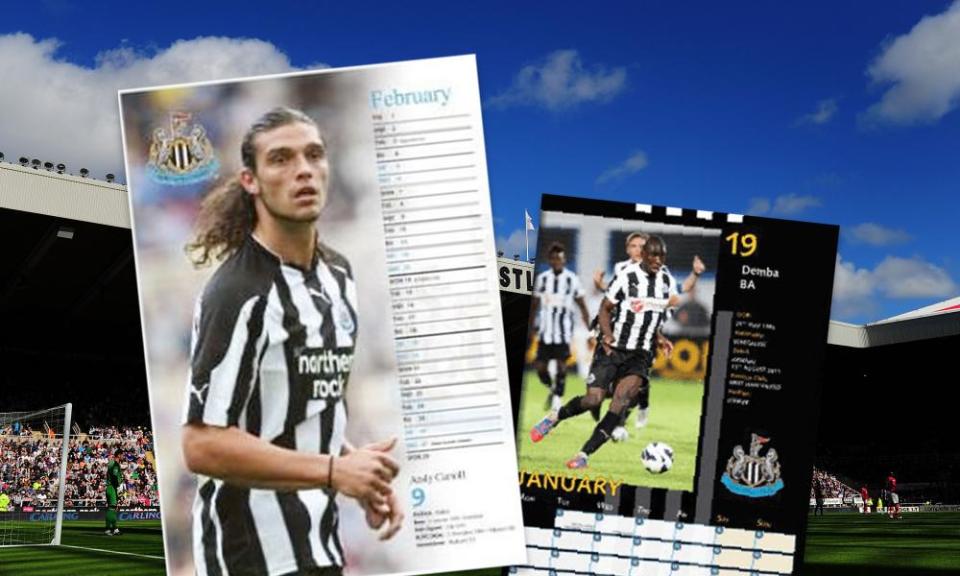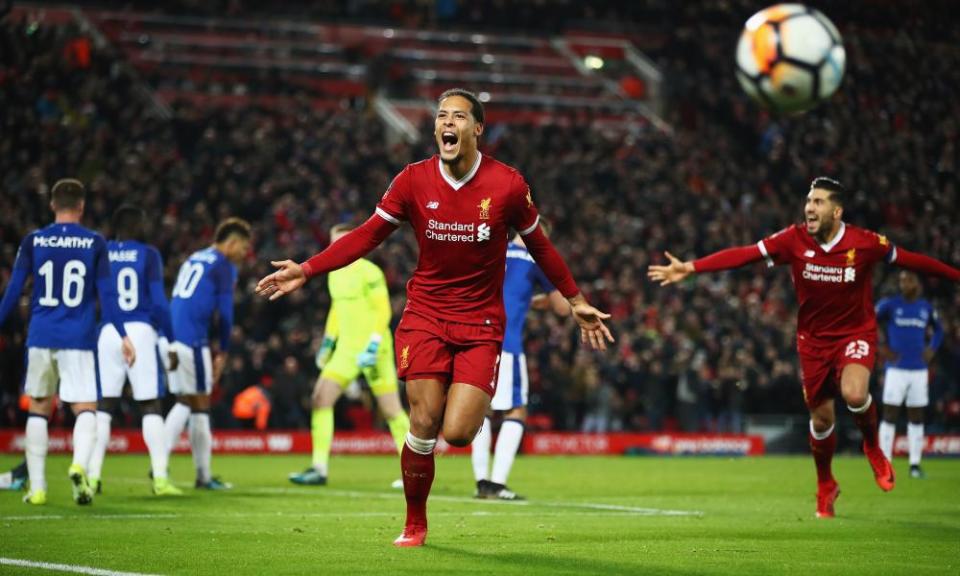Footballers appearing on calendars in years they never played for the club

“I’ve just looked through my 2021 Arsenal calendar before throwing it out,” begins Gordon Forbes. “Mr May, William Saliba, has made zero appearances for the club during 2021. Is there a higher profile calendar participant out there who did not play for his club during that same year?”
We’ll deal with that question shortly but first let’s allow Gordon to show his workings: “Thanks mainly to Saliba (0,0 subs), Willian (eight,12 sub), Maitland-Niles (five, nine sub), David Luiz (16, one sub) and Héctor Bellerín (17, one sub) and with the post-summer contributions of Bernd Leno, Granit Xhaka, Kieran Tierney and Pépé I estimate that all 12 players in the calendar have only filled 306 of the 784 available places (starting XIs and all substitutions) during 2021. At 39% of available playing spots, is this indeed the most unrepresentative club calendar ever?”
That additional question might be one for readers to answer next week but, thanks to the January transfer window, we have found a few examples that help answer the original question. Any Liverpool fans who had the club’s official 2018 calendar would have seen Philippe Coutinho staring at them from the wall in January, a month in which he never played for the club and left for Barcelona for around £142m. Similarly, Virgil van Dijk features in a composite image on the January page of Southampton’s 2018 offering having been confirmed as a Liverpool player on New Year’s Day.
Andy Carroll was Newcastle’s Mr February on their 2011 wallchart having played the last game of his first stint at his boyhood club on 27 December 2010 before joining Liverpool. And two years later Demba Ba was the face of January 2013, a month in which he was in fine form … for Chelsea.

We have also unearthed a few calendar-appearing one-match wonders. Fikayo Tomori was pictured alongside Reece James for August in Chelsea’s official 2021 calendar, meaning his club appearances (one in the FA Cup on 10 January against Morecambe) matched those on the wallchart thanks to a loan move to Milan on 22 January that became a permanent transfer. And Wes Morgan (January on Leicester’s 24-player 2021 calendar) made just one appearance – for eight minutes in the Foxes’ victorious FA Cup final win over Chelsea – last year while Christian Fuchs (May) similarly played just once – 15 minutes in the Cup against Brighton – in 2021.
Big climbs and falls after Christmas Day (2)
In our festive edition we detailed teams who had a remarkable turnaround in results after 25 December, and Ásgeir Ingólfsson has a great example from the land of fire and ice.
“Concerning second half of the season meltdowns from leagues further afield, I present to you Þróttur from the Icelandic league. In the 2003 season they were top of the table at the halfway point with 18 points from nine games. They got only four points from the other nine games and ended up relegated (ninth out of 10 teams), despite being third as late as after the 14th round. In addition, they had two out of the three top scorers that summer.”
Sacked after an abandoned game
I mean, that’s one for @TheKnowledge_GU - has any other manager been sacked directly after an abandoned game? https://t.co/vyvJFdrZfs
— Richard Wilson (@HYFPRW) December 18, 2021
Yes, they have Richard. “Dennis Greene left Boston after an abandoned FA Trophy tie at Witton Albion (having been losing 1-0 at half time),” writes Christian James. “We had lost 9-2 the week before.” And Alun Thomas has this: “Not an abandoned game, but Sunderland sacked Malcolm Crosby in February 1993 after the pools panel ruled they had lost a postponed game away to Tranmere.”
Longest fixture in England
“Brighton and Hove Albion v Wolverhampton Wanderers must be a contender for the longest fixture possible in the English leagues, in terms of letters used (43 letters excluding ‘v’). Any advance?” asks Tom Biltcliffe.
It would appear to be the longest meeting of two clubs from the four professional leagues in England, Tom, but if we dip into the lower leagues we can find a lengthier matchup. “Havant & Waterlooville v Hampton & Richmond Borough in the National League South beats it by a character; even more (48) if you spell out the ampersands in full as with Brighton and Hove Albion,” writes Steve Hyde.
“I know Tom’s question was aimed at English leagues but if you expand it to include Scottish leagues, you can have Inverness Caledonian Thistle v Dunfermline Athletic (45 characters),” offers Adam Anderson. “A potential early round Scottish Cup clash between ICT and Bonnyrigg Rose Athletic (Scottish Lowland League), would also produce 47 characters.”
Knowledge archive
“Dundalk scored after 12 seconds in the League of Ireland … after their opponents Derry had taken the kick-off,” wrote Sam Alanson in September 2014. “Is this the quickest goal ever scored by a team who didn’t kickoff?”
The short answer to this question is, no. But we had several responses from which we have permed the following quickfire top four, including the fastest goals in the entire history of the FA Cup, the Champions League and the World Cup:
9 seconds: Roda v Den Haag, October 2011. Den Haag took the lead nine seconds after the home side took the kick-off, but it didn’t help them much: they lost the game 5-2. Thanks to Stephan Wijnen for the tip-off.
9 seconds: Reading v West Brom, February 2010. “Nine seconds was all it took for the home side to seize the lead,” we reported. “Albion had kicked off and the ball was fed swiftly to right-back Gianni Zuiverloon, but the Dutchman dallied, allowing Jimmy Kébé to pilfer possession and then guide a low shot under the goalkeeper.” Hat-tip to Adam Roberts for the reminder.
10.12 seconds. Bayern Munich v Real Madrid, March 2007. Hat-tip to Joe Foley for this one. Roy Makaay’s goal remains the fastest in the Champions League, and as an added bonus it contributed to eliminating Madrid from the Champions League.
10.80 seconds. South Korea v Turkey, July 2002. The World Cup third-place play-off, Hong Myung-bo is a little bit too relaxed with his first touch, and Hakan Sukur pounces. Yaad Ilani suggested that one.
Can you help?
“What is the largest goal tally for two teams combined drawing in both their home and away fixtures in a season? I presume there are examples of say 3-3 and 4-4 but are there any really big tallies where they just got two points?” asks John McDougall.
Hope @TheKnowledge_GU can share other such longest gaps in appearances for same club without leaving https://t.co/jnXcn4uuxK
— Chittaranjan (@Chittaranjan) January 3, 2022
“I was interested to read that Celtic captain Callum McGregor has won all 14 of the finals that he’s played in for the Hoops,” writes David Shearan. “Has anyone bettered this record?”
Has a match played on December 31st ever run so late that it finished in the new year? Or has a match started and ended in different calendar years for any other reason?
— Kári Tulinius (@Kattullus) January 4, 2022
“Raheem Sterling has scored 18 goals for England, all in competitive matches,” notes Yasin Uddin. “Are there other players with similar records and which player has the highest number of international goals without padding their stats in friendlies?”
Now that I think about it, probably one for @TheKnowledge_GU https://t.co/5yC8HbAfSr
— Jack Tanner 🏴 (@EchoSportJack) December 31, 2021
With Dover bottom of the National League on -8 points, having played half their games and therefore on course to only reach -4 by the end of the season, I was wondering if a team has ever ended a season on negative points? And if several have, what’s the highest league to see it?
— Ed Coe (@edcoe) January 4, 2022
“Porto have won the Primeira Liga 29 times, and the main domestic cup 17 times, but are yet to win the Portuguese League Cup (which admittedly only began in 2007) having lost four finals,” writes Niall McVeigh. “Are there other examples of trophy-laden teams with a drought in one particular domestic competition?”
Sometimes players unintentionally send a ball backwards and give away a corner kick. How far have they gone? For example - though seems hardly possible - has any attacking corner turned into a defending corner due to miskick?
— Suat Başar Çağlan (@caglan_suat) January 4, 2022
• Mail us your questions or tweet @TheKnowledge_GU.

 Yahoo Sport
Yahoo Sport 





































